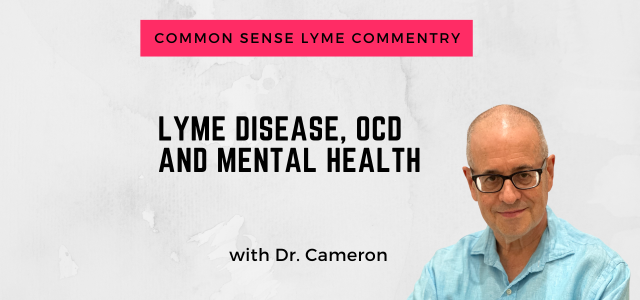Lyme Science Blog
Dr. Daniel Cameron, MD, MPH, is a nationally recognized leader for his expertise in the diagnosis and treatment of Lyme disease and other tick-borne illnesses. His weekly Lyme Disease Science blog features articles covering the latest research, insights and case reviews.
AI, Lyme Science Blog
Bad Signs After Tick Bite: 7 Warnings You Shouldn’t Ignore
Bad Signs After a Tick Bite: 7 Warnings You Shouldn’t Ignore Based on clinical experience caring for patients with tick-borne
Lyme Science Blog
The Case for Chronic Lyme: A Medical Perspective
The Chronic Lyme Disease Controversy I’ve been treating chronic Lyme disease for 37 years. In that time, I’ve witnessed firsthand
AI, Lyme Science Blog
When Fear Delays Pediatric Lyme Treatment: A Year Lost to Lyme Disease
When this family brought their son to me, they were facing a decision many parents encounter when delaying pediatric Lyme
Lyme Science Blog
Lyme disease causes bilateral facial palsy
Bilateral facial palsy (paralysis or weakness on both sides of the face) is extremely rare and can be caused by
AI, Lyme Science Blog
Preventing Long-Term Lyme Disease
Preventing Chronic Lyme Disease: A Clinical Guide Preventing chronic Lyme disease has been a central focus of my clinical practice
Lyme Science Blog
Lyme Disease and Mental Health
My patient had a long-standing history of Obsessive-Compulsive Disorder (OCD) that had been well-controlled for years. However, after being diagnosed
Lyme Science Blog
I never learned about Lyme disease in Medical School
During my medical school, graduate school, and residency, Lyme disease wasn’t even on my radar. That’s not surprising, given that
Lyme Science Blog
Relapse in Lyme disease due to failure to eradicate the spirochete
Relapse in Lyme disease remains a critical issue, often due to the failure to completely eradicate the Borrelia burgdorferi bacterium
Lyme Science Blog
Brain Fog and Cognitive Symptoms in Children With Lyme Disease
Brain Fog and Cognitive Symptoms in Children With Lyme Disease Updated January 2026 Many parents notice something is wrong long









